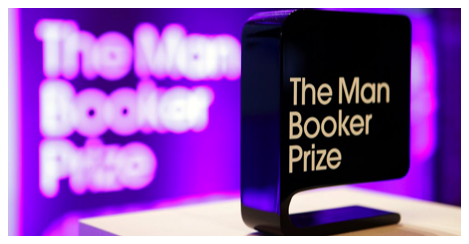
Is the Man Booker Prize Getting Relevant?
2016’s Man Booker Prize went to Paul Beatty’s The Sellout, which is certainly a much-lauded novel but not exactly the kind of book you think of when you think “Booker.” The Sellout is a biting and gutsy satire about race that will make you raise your eyebrows over and over again while you think to yourself, I can’t believe he just said that. The Man Booker Prize, in my mind, is mostly about historical novels involving mostly-British tumult or middle-aged meditations on life written in thick prose.
Last year’s winner was Marlon James’s A Brief History of Seven Killings, a sprawling and ambitious book about the assassination of Bob Marley and the intersection of class and violence in Jamaica. Another much-loved but seemingly-unlikely candidate, another definitely-not-stuffy-or-British novel.
And to top it all off, in 2014, the Prize officially changed its rules. From its inception in 1969, the Prize was only awarded to a citizen of the Commonwealth of Nations, a group of 52 countries made up almost entirely of previous territories of the British Empire. (Ireland, while not a member, was also eligible.) As of 2014, the Prize may be given to any author of a novel printed in the United Kingdom in English. Beatty is the first non-Commonwealth author to receive the award.
This got me wondering, is the Man Booker Prize becoming hip? Is it trying to put its finger on the pulse of modern fiction? Is it moving away from British classicism?
To answer that question, first I had to look at the history of the Booker to figure out if my impressions of it were accurate.
50 novels have received the Booker Prize (not including the “Lost Booker” of 1970, and I know you’re thinking that maybe this just got interesting and there’s a Dan Brown novel lurking in here somewhere but it’s boring, I promise). About half of those have gone to English authors. While the Commonwealth is made up of 52 countries, most of them are barely represented. The five largest countries in the Commonwealth are India, Pakistan, Nigeria, Bangladesh, and the United Kingdom. But Pakistan and Bangladesh have no Booker winners, and Nigeria has only one. The Commonwealth is largely made up of people of color, but 78% of the prizes have gone to white writers.
But in the last 10 years, 4 awards have gone to English novels (and only 3 to English writers as Hilary Mantel has won twice). It’s a slight decrease, but the trend is moving against England. In the last 5 years, only 1 winner was English. Similar trends appear among authors of color. Only 3 authors of color won the Booker in the last 10 years, but if you look at just the last 5 years it goes from 33% up to 40%. (Women are holding steady at 40% of the winners, a slight improvement from the all-time number of 34%.)
And what about the novels themselves? This was the most interesting part of my research and the most surprising. It turns out that my impression of the Booker is based mostly on the last 20 years of the prize. In the last 20 years there are many historical novels, plenty of family dramas, and a sizable portion of thick prose that most readers will find more difficult than luminous. But the early years of the Booker were very different. The early Booker prizes gave several awards to experimental and avant-garde novels (such as G by John Berger, The Elected Member by Bernice Rubens, and The Sea, The Sea by Iris Murdoch), and the most common subject by far was pointed commentary against British colonialism (including winners such as In a Free State by V. S. Naipaul, Heat and Dust by Ruth Prawer Jhabvala, and Staying On by Paul Scott). These works are sometimes still problematic, many of the novels about foreign countries whose citizens are mostly people of color are written by white British people, but they are making a distinct effort to dismantle the empire that built the Commonwealth in the first place. (It’s certainly of note that all the novels dealing with Apartheid are by white authors.)
Rather, it seems like the Booker may be coming into its own as a prize. It’s embracing diversity in a way it hasn’t before (in the first 20 prizes, only 3 went to authors of color) and it’s returning to its place as a champion of modern fiction with fresh voices that pushes boundaries.
Ultimately, it’s hard to say if the Booker will embrace this role. While the prize is steered by an Advisory Committee, that committee appoints a new group of judges each year to determine the winner. The Booker has also been beset by gossip, with judges taking public stands against books on the list or against their fellow judges.
In the end, it’s only been 4 years since Hilary Mantel took home her second Booker Prize for Bring Up the Bodies. It’s about as British a book as you can get, and when she won in 2012 I doubt anyone was surprised. That is exactly what the Booker represents in my mind. And I can’t help but admit that if Mantel put out another historical epic in 2017, I’d still consider her a shoo-in for a Booker hat trick. Ask me again in 5 years and then we’ll see where the Booker stands.








